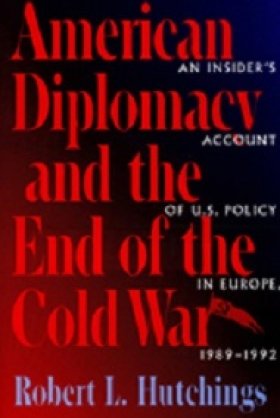American Diplomacy and the End of the Cold War: An Insider's Account of U.S. Policy in Europe, 1989-1992

-
As director for European affairs at the National Security Council from 1989 to 1992, Robert Hutchings was at the heart of U.S. policymaking toward Europe and the Soviet Union during the dizzyingly fast dissolution of the Soviet bloc. American Diplomacy and the End of the Cold War presents an insider's report on and analysis of U.S. performance during a crucial turn of world history.
Hutchings also brings a scholar's balanced judgment and historical perspective to his insider's view as he reconstructs how things looked to policymakers in the United States and in Europe, describes how and why decisions were made, and critically examines those decisions in the light of what can now be known. He assesses the critical support of U.S. diplomacy for the East European revolutions and the unification of Germany—offering fascinating character sketches along the way—and describes how U.S. relations with Moscow were managed up to the collapse of the USSR. Hutchings also discusses the difficulties in forging a post-cold war European order and U.S. failures in dealing with a disintegrating Yugoslavia.Robert L. Hutchings was director for European affairs at the National Security Council in 1989–92 and special adviser to the secretary of state in 1992–93. He has taught at the Johns Hopkins University School of Advanced International Studies and at the University of Virginia, and was a fellow of the Woodrow Wilson International Center for Scholars in 1993–94.
Author
 Robert L. HutchingsDistinguished Fellow;
Robert L. HutchingsDistinguished Fellow;
Professor of Public Affairs and Walt and Elspeth Rostow Chair in National Security, Lyndon B. Johnson School of Public Affairs, University of Texas at AustinBrowse Insights & AnalysisExplore More
Browse Insights & Analysis



